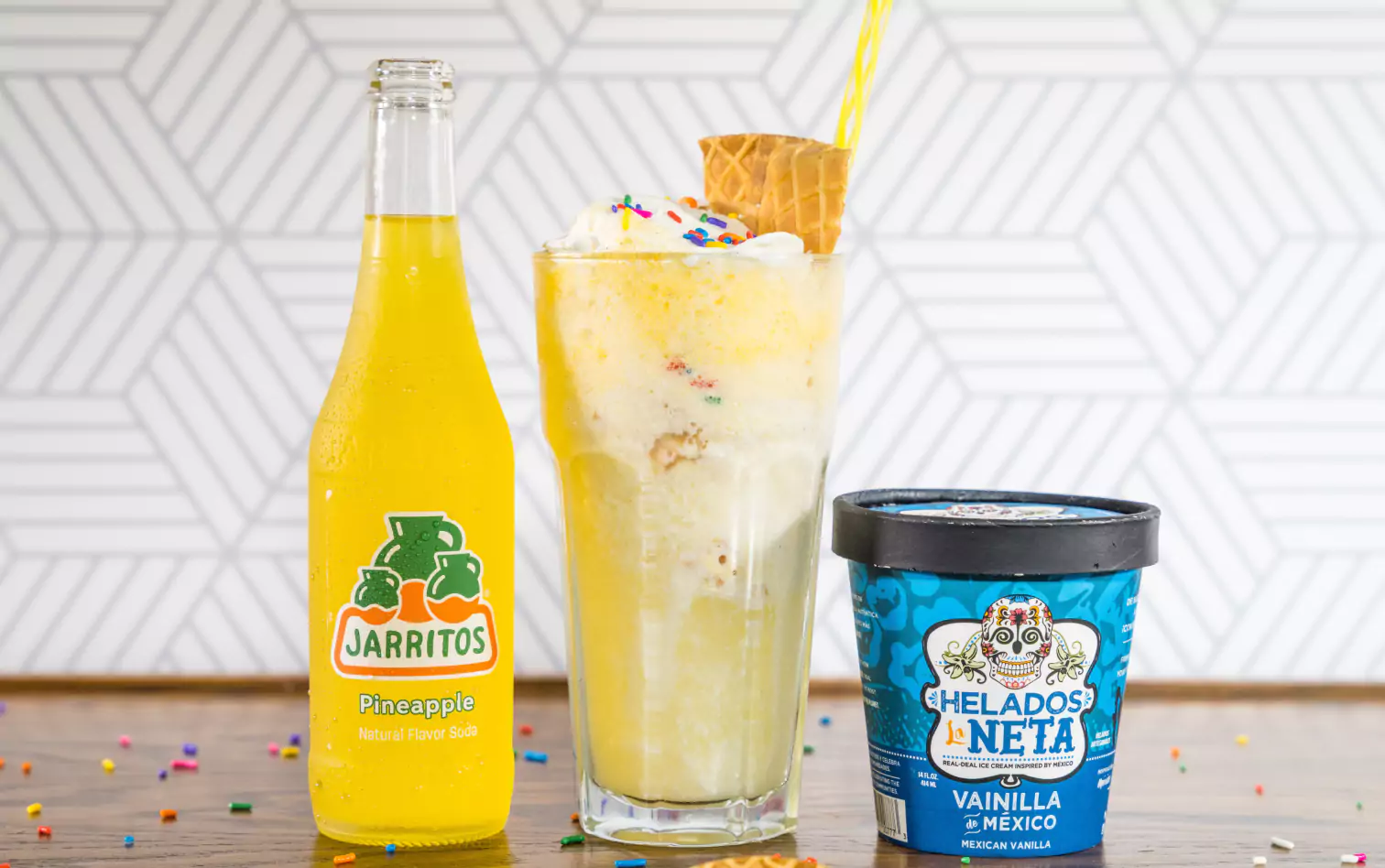Stevia Unveiled: The Impact of Artificial Sweeteners on Insulin

Key Takeaways
Do you know someone who is always trying to watch their sugar intake? Maybe they're on a special diet, or perhaps they're just trying to be health-conscious.
You may have even been one of these people yourself at some point or the other. We've all thought about it—how much sugar is too much? Are artificial sweeteners a good alternative to sugar?
Are they just as bad for you as excess refined sugar, or worse? It's is a question that does not necessarily have a straightforward answer, but let's try to break it down a little.
The first thing you should know is that there's a lot of discourse surrounding the use of artificial sweeteners. Some people believe that they're a healthy alternative to sugar. In contrast, others think they're dangerous because of their potential effect on insulin levels.
Insulin is a hormone that helps your body process sugar. Without it, the level of sugar in your blood can become dangerously high. When blood sugar levels are high, insulin helps bring them back down by signaling the body to store excess sugar as glycogen or use it for energy.
So, the concern here is that artificial sweeteners may raise insulin levels.
What the Research Says About Artificial Sweeteners, Blood Glucose, and Insulin

There are heated debates surrounding artificial sweeteners in the wellness world, with research ongoing on both sides. In recent years, artificial sweeteners have become a popular alternative to sugar.
Some think they're healthier because they contain few or no calories and do not raise blood glucose levels. Some people swear by them as an easy, painless way to cut down on sugar intake and manage blood sugar levels, while others believe they're harmful.
There has been extensive research on sugar substitutes, but results are conflicting, and as always, more research is needed for definitive answers. We will cover the current state of research today on these substances!
The metabolic response to these sweeteners can vary based on many different factors, including the type of sweetener you use, the amount you consume, and many more variables. Recent studies have shown that artificial sweeteners may lead to higher insulin resistance.
While sweeteners may help reduce your caloric intake, insulin resistance may lead to health issues like type 2 diabetes.
Why Might These Sweeteners Impact Insulin?
Sugar substitutes are sugar-free, which means they don't actually contain glucose. So, most research shows limited evidence that they actually stimulate an insulin response. It's a common misconception that artificial sweeteners can raise blood sugar levels and interfere with insulin production.
Remember that though artificial sweeteners don’t contain glucose, they do stimulate the taste buds to anticipate food, and there is some evidence showing they stimulate our cephalic response. As Dr. Leanne Poston of Invigor Medical shares
"The cephalic phase of digestion involves anticipating the sweetness of the meal or drink to be consumed. Insulin levels rise throughout this phase, even when artificial sweeteners are used. However, artificial sweeteners do not cause blood sugar levels to rise
This means that our body gets signals to prepare it for food, and releases feeding hormones in anticipation of it, which can sometimes cause unwanted food and sugar cravings.
What Types of Food Groups Cause Insulin Levels to Rise?

It's no secret that refined, processed, and high-sugar foods can cause weight gain, but what may surprise you is how certain food groups affect insulin levels. Foods high in sugar and carbohydrates can all lead to a rise in insulin levels, which can have severe consequences for your health.
Understanding which types of food groups to avoid can help you lower your risk of developing chronic diseases like obesity and diabetes. The most common food types that may result in insulin spikes are:
- Carbohydrates
- Processed foods
- Sugary drinks
- Added sugars
Eating foods that raise your blood glucose levels may cause your body to release more insulin. So, overindulging in these foods may cause you to develop insulin resistance over time.
{{rich-text-cta-cgm1="/style-guide"}}
What Are Artificial Sweeteners or Sugar Substitutes?

Artificial sweeteners are synthetic sugar substitutes. They are often used to substitute for sugar because they contain a low (or no) calorie count. People looking to lose weight usually opt for these as a lower-calorie substitution, but they're also in everything from pre-made frozen meals to desserts and even some types of toothpaste!
So, remember to read labels if you're trying to avoid them.
Types of Artificial Sweeteners and Their Relationship With Insulin Levels
While reducing your intake of added sugars is important, it's also important to be mindful of the types of sweeteners you're using. There are many different types of artificial sweeteners on the market, and not all of them are created equal (pun intended).
With so many different types available, it can be challenging to determine which one is best for you.
Here's a starter guide on the relationship between artificial sweeteners and insulin levels, including what pros and cons these sweeteners may have on your body. Read on so you can make the most informed decision for your health:
Saccharin [Sweet'n Low]

Saccharin, which the popular brand Sweet'n Low includes, is an artificial sweetener that has been around for over 100 years. It's 200-700 times sweeter than sugar and is in many food and beverage products.
Saccharin has been the subject of some health concerns in the past. However, it's now recognized as safe by the FDA, classified as a non-nutritive sweetener. Studies have shown mixed results regarding the effect of saccharin on your insulin levels.
Some research has connected it with an increase in insulin levels, while other studies have found no effect.
Foods that contain Saccharin [Sweet'n Low] include:
- Soft drinks (soda)
- Bottled teas
- Pre-made baked goods
- Gum
- Canned fruit
- Sugar substitute packets in restaurants and cafes
Sucralose [Splenda]

Sucralose, or Splenda, is a calorie-free artificial sweetener that has been on the market since 1999. Sucralose is unique because it is made from natural sugar but chemically modified to be 600 times sweeter than table sugar.
There is mixed evidence of decreased glucose tolerance after acute consumption, but the effect may be more pronounced with obesity. There is one study that suggest sucralose could increase fasting glucose iAUC. It also results in it being essentially zero-calorie.
Foods that contain Sucralose [Splenda] include:
- Ice creams
- Soft drinks (soda)
- Yogurts
- Candy
- Sugar substitute packets in restaurants and cafes
Aspartame [Equal]

Aspartame is an artificial sweetener found in many diet soft drinks and other products. The FDA approved it for use in foods and beverages in 1981, and it's been one of the most popular sugar substitutes on the market since. The large majority of acute studies while fasted show no effect on glucose or insulin
Foods that contain Aspartame [Equal] include:
- Cereal
- Instant coffee
- Gum
- Pudding
- Dairy products
- Soft drinks [soda]
- Sugar substitute packets in restaurants and cafes
Acesulfame Potassium [Sweet One]

Acesulfame potassium, also known by the brand name Sweet One, is an artificial sweetener 200 times sweeter than sugar. Acesulfame potassium is often combined with other sweeteners such as sucralose and aspartame. It's heat-stable and does not break down when exposed to high temperatures, making it a popular choice in baked goods and beverages.
Unlike some other artificial sweeteners, acesulfame potassium has no aftertaste. From some mice and animal studies, acute consumption in fasted state had no effect on glucose or insulin; chronic consumption showed no effect on glucose tolerance.
Foods that contain Acesulfame Potassium [Sweet One] include:
- Premade baked goods
- Candy
- Soft drinks [soda]
- Beverages
- Frozen desserts
Other sugar-free, so-called "natural" sweeteners such as stevia, allulose, monkfruit, and polyols may influence gut microbiota composition, but from current research, don't appear to carry the same risks as the sweeteners mentioned above.
Some of these sweeteners (like the polyols) may act as prebiotics, but may also cause more gastrointestinal (GI) distress for some people prone to digestive sensitivities like irritable bowel syndrome (IBS). If you don't experience any negative symptoms from these, they might be worth trying out as safer alternatives to things like aspartame, saccharin, and sucralose.
Can Artificial Sweeteners Cause Other Health Issues?

There are other health issues associated with consuming artificial sweeteners that you may want to consider before you swap out sugar for artificial sweeteners. While all the ongoing research and FDA approvals may make it seem like these products are a healthy alternative to sugar, that is not always the case for everyone. It's essential to be aware of all the potential risk factors before consuming artificial sweeteners.
Dr. Michael Green, a board-certified physician shares, "despite being marketed as a low-calorie or zero-calorie alternative to sugar, some research suggests that artificial sweeteners may disrupt metabolic processes and lead to weight gain or metabolic disturbances. This could be due to various factors, including changes in gut microbiota composition and altered appetite regulation."
Since these changes could take place over a longer period and may not show up right away or with more immediate alterations in blood glucose values (such as CGM values), it may be a good idea to try to avoid large amounts of these sweeteners where you’re able. Dr. Green continues, "there is also a possible association between regular consumption of artificial sweeteners and a higher risk of metabolic syndrome, insulin resistance, and type 2 diabetes."
However, at this time, more research is required to establish a causal relationship. It is believed that prolonged and regular use of these sweeteners may lead to long term health conditions. If you're considering sugar substitutes, speak with your doctor or a registered dietitian or nutritionist before making changes in your diet.
Find the right Nutrisense programto turn insight into progress.
Go Beyond Glucose Data with Nutrisense
Your glucose can significantly impact how your body feels and functions. That’s why stable levels are an important factor in supporting overall wellbeing. But viewing glucose isn't enough. Nutrisense, you’ll be able to learn how to use your body's data to make informed lifestyle choices that support healthy living.
One-to-one coaching
Sign up to access insurance-covered video calls to work with a glucose expert: a personal registered dietitian or certified nutritionist who will help tailor your lifestyle and diet to your goals.
Monitor and measure what matters
With the Nutrisense CGM Program, you can monitor your glucose with health tech like glucose biosensors and continuous glucose monitor (CGM)s, and analyze the trends over time with the Nutrisense App. This will help you make the most informed choices about the foods you consume and their impact on your health.
Find your best fit
Ready to take the first step? Start with our quiz to find the right Nutrisense program to help you take control.

Carlee's training at Western Illinois University and an internship at the Memphis VA Hospital lead her to a career in outpatient counseling and bariatric nutrition therapy. In these positions, Carlee realized many of the disease states (upwards of 80%!) her patients experienced were actually preventable. She knew she had to dig deeper into preventative health and has since been passionate about helping people translate this complex glucose data into actionable changes anyone can implement into their everyday lives.




